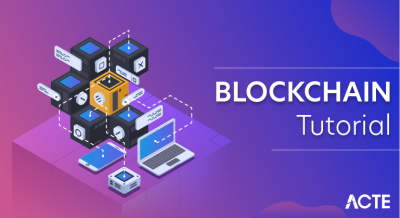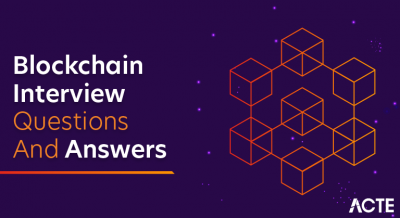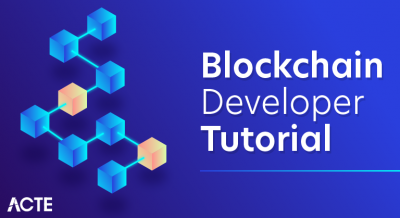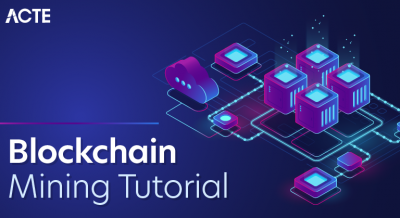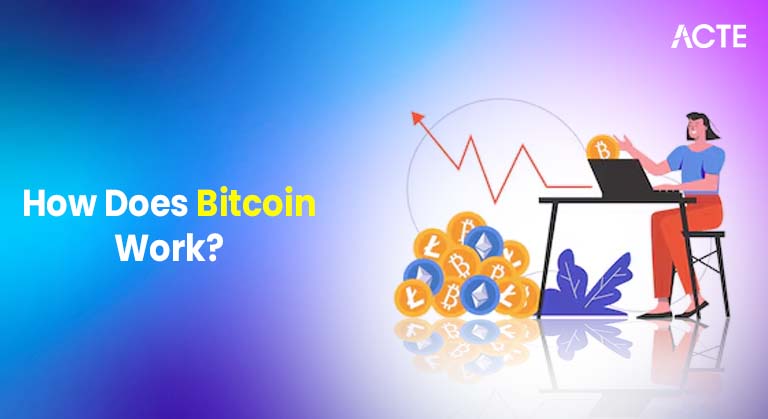
- Introduction to Bitcoin
- The Concept of Decentralization
- Blockchain Technology Explained
- How Transactions Work in Bitcoin
- The Role of Miners and Mining
- Bitcoin Security and Cryptography
- Bitcoin Wallets and How to Use Them
- Challenges and the Future of Bitcoin
Introduction to Bitcoin
Bitcoin, the world’s first and most popular cryptocurrency, represents a groundbreaking shift in the financial landscape, introducing a system rooted in Decentralisation and Development. Unlike traditional currencies controlled by central banks, Bitcoin operates on a decentralized network of computers that validate and record transactions through a public ledger called the blockchain. This transparency ensures trust without intermediaries. Understanding how Bitcoin works technically involves exploring its core mechanism blockchain technology where transactions are verified by miners using cryptographic algorithms and added to blocks. For those looking to gain hands-on experience, Blockchain Training programs can provide deeper insights into these processes and the underlying technical concepts. These miners are rewarded with new bitcoins, a process that not only secures the network but also releases new coins into circulation. Today, enthusiasts can even explore Free Cloud Mining platforms that allow them to mine Bitcoin without purchasing expensive hardware, although returns can be limited. Bitcoin’s decentralized nature promotes financial inclusion, global peer-to-peer payments, and a secure alternative to traditional financial systems. As interest in digital assets continues to rise, Bitcoin stands at the forefront, symbolizing the future of money and driving innovation in finance and technology. This introduction only scratches the surface of a vast, evolving ecosystem that continues to challenge conventional economic systems and empower individuals through cryptographic trust and open-source development.
Are You Interested in Learning More About Blockchain Certification? Sign Up For Our Blockchain Training Course Today!
The Concept of Decentralization
- Administrative Decentralization: This involves delegating authority from central governments to local or regional entities, allowing faster and more localized decision-making. It increases efficiency and accountability in both governance and organizational structures.
- Blockchain Wallet and User Autonomy: A Blockchain Wallet is a key example of decentralization in action, giving users full control over their digital assets without relying on third parties like banks or centralized apps. Understanding such technologies also lays the foundation for grasping related concepts like What Is an NFT In Crypto, which further expands the use of decentralized assets.
- Polygon Crypto’s Scalable Infrastructure: Polygon Crypto supports decentralization by offering scalable solutions to Ethereum’s network, reducing congestion and enabling faster, low-cost transactions while maintaining a distributed network.
Decentralization is the process of distributing power, control, and decision-making away from a central authority to multiple entities or nodes. In the context of technology and finance, decentralization empowers users, enhances transparency, and reduces dependency on a single system or governing body. This concept plays a crucial role in modern innovations such as blockchain and cryptocurrencies. Below are key points that explain the concept in more detail:
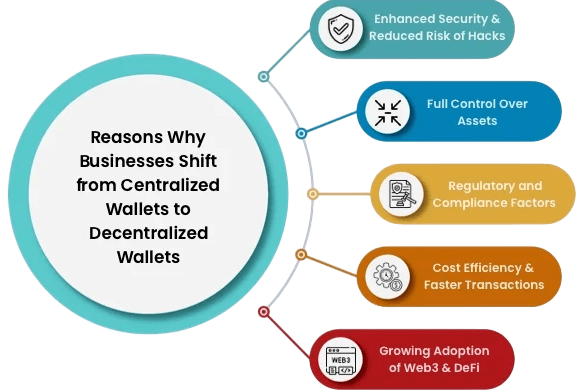
- Bitcoin Wallets and Peer-to-Peer Access: Bitcoin Wallets allow individuals to store and manage their Bitcoin securely, giving users the ability to transact peer-to-peer without intermediaries.
- New Crypto Projects Promoting Decentralized Models: Many New Crypto Projects are built with decentralization at their core, offering innovative use cases like decentralized finance (DeFi), gaming, and identity management.
- Enhanced Security and Trust: Decentralized systems minimize single points of failure and are more resilient against hacks or censorship, thereby increasing trust and reliability for users worldwide.
Blockchain Technology Explained
Blockchain technology is a decentralized digital ledger that records transactions across multiple computers in a way that ensures security, transparency, and immutability. It forms the foundation of cryptocurrencies and is transforming industries through its trustless, peer-to-peer framework. At its core, blockchain promotes Administrative Decentralization by eliminating the need for central authorities and enabling distributed control over data and decision-making. Each transaction is grouped into a block, verified by network participants, and linked to the previous one, creating a secure, unalterable chain. Users interact with this system through tools like a Blockchain Wallet, which allows for secure storage and transfer of assets without third-party involvement. Beyond finance, this technology is driving innovation in other sectors, including Enhancing Blockchain in Agriculture, by improving supply chain transparency and traceability. Innovations like Polygon Crypto enhance blockchain scalability and reduce transaction fees, making decentralized applications (dApps) more accessible. Similarly, Bitcoin Wallets enable individuals to manage their Bitcoin independently, reinforcing the principles of user ownership and privacy. The rise of New Crypto Projects further showcases blockchain’s versatility, introducing solutions in finance, supply chain, healthcare, and digital identity. By removing intermediaries and establishing a tamper-proof system of records, blockchain technology is revolutionizing how data is shared and assets are exchanged, leading to a more open, efficient, and decentralized digital economy.
Are You Interested in Learning More About Blockchain Certification? Sign Up For Our Blockchain Training Course Today!
How Transactions Work in Bitcoin
- Initiation of Transaction: A Bitcoin transaction begins when a user sends funds from their wallet to another user’s Bitcoin address. The sender uses their private key to sign the transaction securely.
- Broadcasting to the Network: Once signed, the transaction is broadcast to the Bitcoin network, where it is picked up by connected nodes that verify the details.
- Verification by Miners: Miners validate the transaction by solving complex algorithms, a process central to how Bitcoin works technically. This ensures that the transaction is legitimate and the sender has sufficient funds.
- Inclusion in a Block:Verified transactions are bundled into a block, which is added to the blockchain once approved. This ensures permanent and tamper-proof recordkeeping. For those navigating the broader crypto ecosystem, resources like a Guide on What is Binance can help users understand how major exchanges interact with blockchain networks.
- Confirmation and Finalization: Each transaction must receive multiple confirmations from the network to be fully validated and irreversible.
- Mining Rewards and Accessibility: Users can explore Free Cloud Mining options to participate in transaction validation without owning expensive hardware, contributing to the network’s security and decentralization.
Bitcoin transactions are the foundation of its decentralized digital currency system. Unlike traditional banking, Bitcoin allows users to send and receive money directly through a peer-to-peer network without intermediaries. This approach supports Decentralisation and Development, enabling global financial access and independence. Below are six key points that explain how Bitcoin transactions work:
The Role of Miners and Mining
Miners play a critical role in maintaining the integrity and security of blockchain networks, especially in cryptocurrencies like Bitcoin. Mining involves solving complex mathematical puzzles to validate transactions and add new blocks to the blockchain, ensuring a trustless, decentralized system. This process supports Administrative Decentralization by eliminating the need for central authorities and distributing control across a global network. When miners successfully verify a block, they are rewarded with newly minted coins and transaction fees, incentivizing continuous participation. Those interested in understanding this process in depth can benefit from Blockchain Training, which covers mining mechanics, rewards, and network consensus.This mechanism also governs the issuance of new cryptocurrencies, maintaining a controlled supply. Users rely on tools like a Blockchain Wallet or Bitcoin Wallets to interact with these networks securely, knowing that miners have verified their transactions. As blockchain evolves, New Crypto Projects are emerging with innovative consensus mechanisms, some reducing energy consumption while preserving decentralization. For example, Polygon Crypto offers scalable solutions with reduced gas fees and faster block times, making it easier for developers to build decentralized applications. Mining not only secures the network but also drives the ongoing development of blockchain technology, ensuring transparency, immutability, and user empowerment in the decentralized digital economy.
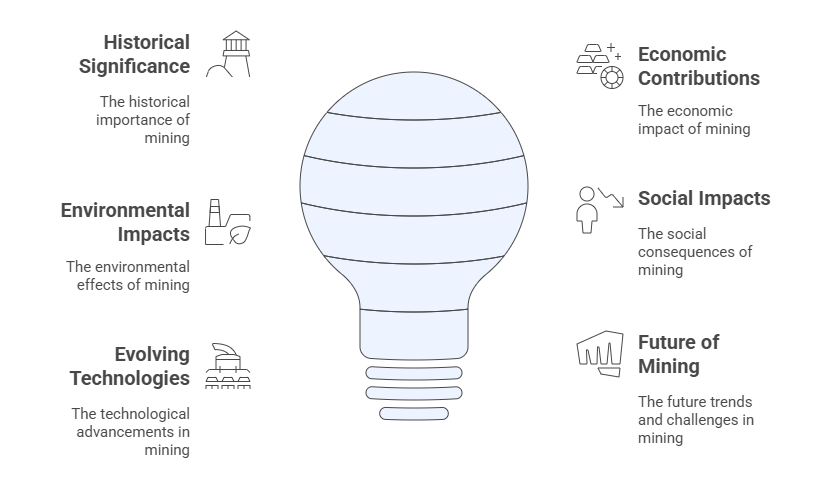
Bitcoin Security and Cryptography
Bitcoin’s security relies heavily on advanced cryptographic techniques and decentralized protocols, making it one of the most secure digital payment systems ever created. At its core, Bitcoin uses public-key cryptography, where each user has a public key (used to receive Bitcoin) and a private key (used to authorize transactions). This system ensures that only the rightful owner can spend their funds. Understanding how Bitcoin works technically reveals that each transaction is digitally signed, encrypted, and verified by nodes across the network before being permanently recorded on the blockchain. This transparent yet tamper-proof structure is a key aspect of Decentralisation and Development, where no single entity controls the network, reducing the risk of manipulation or fraud a crucial factor in Enhancing Blockchain in Agriculture Miners further enhance security by validating transactions and adding them to the blockchain through complex mathematical processes. While traditional mining requires significant computing power, users today can explore Free Cloud Mining options to participate in the network without owning hardware, although rewards are typically smaller. Together, cryptography and decentralization make Bitcoin resilient against hacks and censorship, offering users a secure, private, and borderless way to store and transfer value in the digital age.
Bitcoin Wallets and How to Use Them
Bitcoin wallets are essential tools for storing, sending, and receiving Bitcoin securely, giving users full control over their digital assets without relying on centralized intermediaries. These wallets come in various forms, including mobile apps, desktop software, hardware devices, and web-based platforms, all designed to facilitate secure transactions through private and public key encryption. A Blockchain Wallet, for example, allows seamless access to funds while maintaining transparency and user autonomy, aligning with the principle of Administrative Decentralization. Using a Bitcoin wallet is straightforward users generate a wallet address, receive Bitcoin, and sign transactions using their private key. Wallets also support QR codes and backup features for added convenience, offering practical insight into How To Become a Blockchain Developer by understanding core wallet functionalities. As the crypto ecosystem expands, many wallets now support multiple assets, including Polygon Crypto, enabling users to manage different tokens in one place. These features are especially relevant with the rise of New Crypto Projects, which often require versatile wallets for participation in decentralized apps, staking, or NFT trading. Bitcoin Wallets continue to evolve with improved interfaces, multi-layer security, and decentralized identity tools, empowering users to engage confidently in the digital economy while staying in control of their funds and privacy.
Are You Preparing for Blockchain Developer Jobs? Check Out ACTE’s Blockchain Interview Questions and Answers to Boost Your Preparation!
Challenges and the Future of Bitcoin
Bitcoin, while revolutionary, faces several challenges that could shape its future in the evolving digital economy. Scalability remains a core issue, as the Bitcoin network can process only a limited number of transactions per second, leading to delays and higher fees during peak times. Security and regulatory uncertainty also pose risks, with global governments still debating how to classify and regulate cryptocurrencies. Despite these hurdles, Bitcoin continues to thrive, driven by the principles of Administrative Decentralization, where control is distributed among users rather than centralized authorities. Bitcoin Wallets play a crucial role in user empowerment, enabling secure and independent management of digital assets, while tools like the Blockchain Wallet enhance transparency and control. To effectively use and understand these tools, Blockchain Training can equip users with the necessary skills and knowledge.The rise of scalable blockchain solutions such as Polygon Crypto offers hope for Bitcoin’s integration into faster, more efficient networks, improving usability and reducing costs. Additionally, New Crypto Projects are pushing the boundaries of what blockchain can achieve, introducing innovations in smart contracts, decentralized finance, and cross-chain compatibility. As the crypto space matures, Bitcoin must adapt to remain relevant through technological upgrades, improved infrastructure, and wider adoption ensuring its position as a foundational asset in a decentralized, blockchain-driven future.


